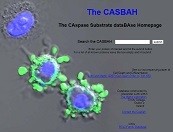Journal Information
On this page: Aims and scope of journal | Abstracted/indexed in | ISSN and eISSN | Newsfeeds | CDD Recommended Databases |
Aims and scope of journal
Mission, vision and values of Cell Death & Differentiation:
- To devote itself to scientific excellence in the field of cell biology, molecular biology, and biochemistry of cell death and disease.
- To provide a unified forum for scientists and clinical researchers
- It is committed to the rapid publication of high quality original papers relating to these subjects, together with topical, usually solicited, reviews, meeting reports, editorial correspondence and occasional commentaries on controversial and scientifically informative issues.
Submit to Cell Death & Differentiation and receive an excellent authorship experience
Submit your next manuscript to Cell Death & Differentiation and benefit from:
- Highly ranked in the cell biology field
- International and highly respected editorial team
- Flagship journal of CDDpress - devoted to scientific excellence in cell and molecular biology
- Wide exposure and article visibility via nature.com
- Engaged and growing Twitter following via @CDDpress
- Funder compliant open access options available
- Share your article through SharedIt - Springer Nature’s content-sharing initiative allowing authors and subscribers to share links to view-only, full-text articles from this journal
Journal Metrics
Article metrics such as number of downloads, citations and online attention are available from each article page, and provide an overview of the attention received by a paper.
2022 Citation Metrics
2-year Impact Factor*: 12.4
5-year Impact Factor*: 13.3
Immediacy index*: 3.3
Eigenfactor® score*: 0.02792
Article influence score*: 3.1
Journal Citation Indicator*: 1.81
SNIP**: 2.211
SJR***: 3.558
*2022 Journal Citation Reports® Science Edition (Clarivate Analytics, 2023)
**Source-normalized Impact per Paper (Scopus)
***SCImago Journal Rank (Scopus)
2023 Peer Review Metrics
Submission to first editorial decision: 16 days
Submission to Accept: 176 days
2023 Usage Metrics
Downloads: 2,632,977
Altmetric mentions: 3,380
Abstracted/indexed in
- EBSCO Discovery Service
- Google Scholar
- OCLC
- Medline
- Summon by ProQuest
- BIOSIS
- Current Contents/Life Sciences
- Science Citation Index
- Science Citation Index Expanded (SciSearch)
- SCOPUS
- PubMedCentral
- EBSCO Academic Search
- EBSCO Advanced Placement Source
- EBSCO Biomedical Reference Collection
- EBSCO STM Source
- EBSCO Science & Technology Collection
- EBSCO TOC Premier
ISSN and eISSN
The international standard serial number (ISSN) for Cell Death & Differentiation is 1350-9047, and the electronic international standard serial number (eISSN) is 1476-5403.
Newsfeeds
Cell Death & Differentiation now provides its latest table of contents as an RSS web feed. This allows users with an RSS reader to receive automatic updates whenever new content is added to these pages.
Receive Cell Death & Differentiation's current issue table of contents.
Find out more about RSS feeds, how to download an RSS reader and see all the news feeds offered by Springer Nature.
CDD Recommended Databases
DeathBase
 DeathBase is a database of proteins involved in cell death processes. Updated continuously by a team of expert curators whose areas of expertise cover all proteins involved in cell death in five model species, DeathBase provides a useful tool for anyone with an interest in apoptosis and cell death.
DeathBase is a database of proteins involved in cell death processes. Updated continuously by a team of expert curators whose areas of expertise cover all proteins involved in cell death in five model species, DeathBase provides a useful tool for anyone with an interest in apoptosis and cell death.
CASBAH
 The Caspase Substrate database Homepage (CASBAH) provides a comprehensive list of caspase substrates as a searchable web resource containing information pertaining to all currently known caspase substrates.
The Caspase Substrate database Homepage (CASBAH) provides a comprehensive list of caspase substrates as a searchable web resource containing information pertaining to all currently known caspase substrates.
The p53 website

The p53 website is a reference for all scientists working on p53, including information on p53 structure and function, the description of all p53 monoclonal antibodies and the phylogenetic analysis of p53. The p53 web site also hosts the UMD p53 mutation database that can download for clinical or epidemiological analysis.
Bcl-2 family database
 Bcl-2 family database holds a collection of sequence, structural and functional information about one of the most studied protein families in cell biology, enabling researchers to readily retrieve Bcl-2 family sequences and related data.
Bcl-2 family database holds a collection of sequence, structural and functional information about one of the most studied protein families in cell biology, enabling researchers to readily retrieve Bcl-2 family sequences and related data.
